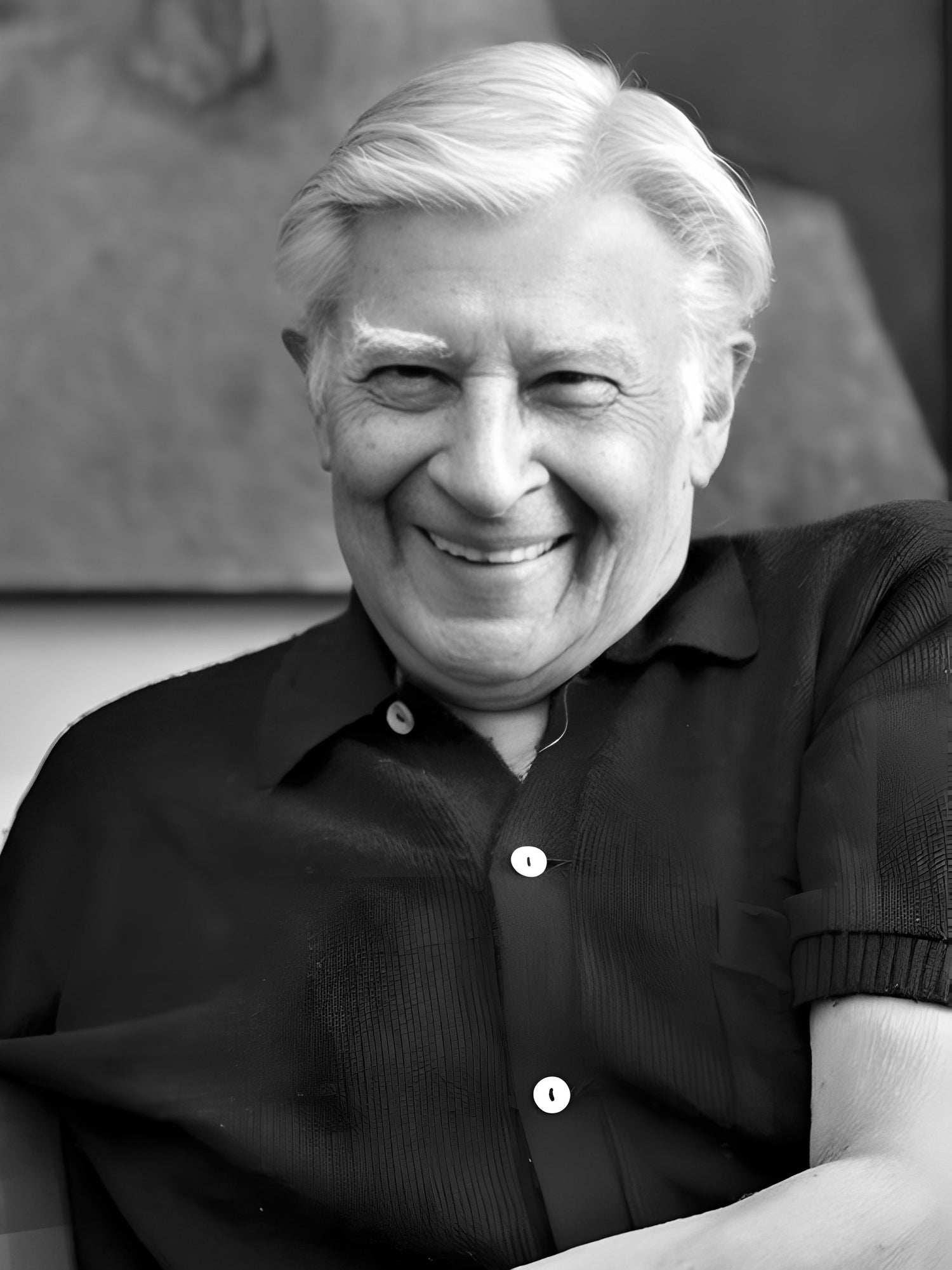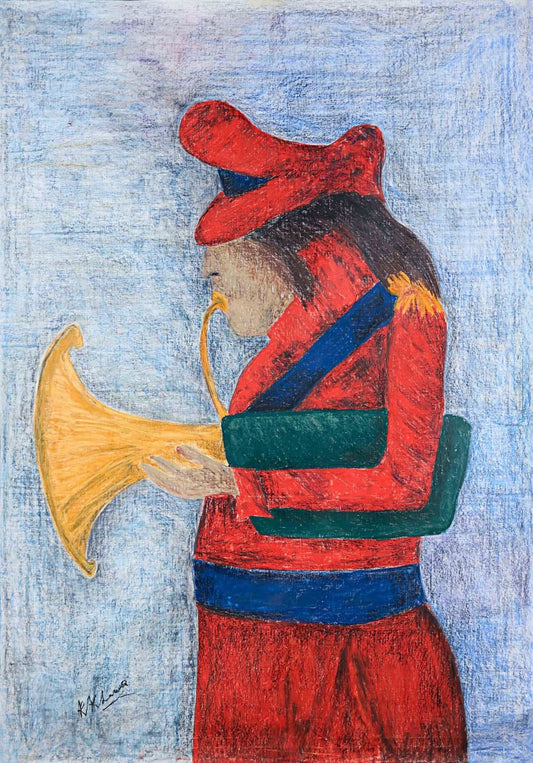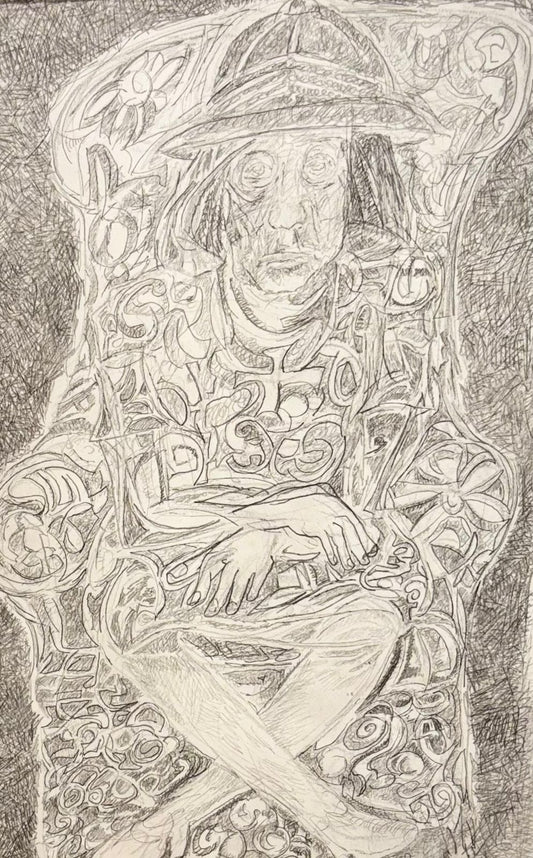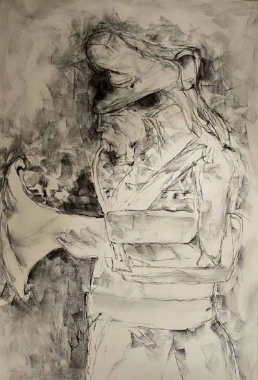
KRISHEN KHANNA
Krishen Khanna’s art carries a quiet yet powerful resonance, shaped by an acute awareness of history, displacement, and the enduring human spirit. His figurative paintings unfold as intimate reflections on exile and belonging, woven with symbolic motifs that deepen the narrative and invite contemplation. Human figures, solitary or in groups, inhabit spaces that evoke both memory and timelessness, capturing moments of resilience amid uncertainty.
The complexity of Khanna’s imagery reveals a layered visual language where personal experience intersects with broader social realities. His subtle use of light and shadow enhances the emotional texture of each composition, while a carefully chosen palette lends warmth and depth. Architectural forms, animals, and musical instruments appear as recurring symbols, enriching the works with allegorical meaning and connecting viewers to cultural and philosophical currents. Khanna’s commitment to bridging modernist techniques with Indian artistic traditions situates him among the pioneering voices who shaped post-independence Indian art. His association with the Progressive Artists’ Group of Bombay underscores this engagement, marking a continuous exploration of identity through art. The themes of displacement and human dignity that permeate his paintings often reflect his own experiences during the Partition, lending a poignant urgency to his work.
Honored with numerous accolades including the Padma Bhushan, Khanna’s influence extends beyond national boundaries, securing his place in global art history. His paintings serve as meditative spaces where memory, loss, and hope converge, inviting viewers to engage with profound questions of time and existence. With a career spanning over seven decades, his oeuvre remains a testament to the enduring power of art to convey complex narratives with grace and subtlety. Krishen Khanna’s work continues to inspire artists and audiences alike, offering rich visual stories that transcend specific moments to touch universal themes of human experience and resilience.





